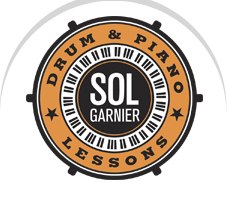I love this subject. I think every music teacher should love this question. It points us, all of us, beginners and experts, in the right direction. We have to understand the magnitude and diversity of this question to be able to pass on our music knowledge to our pupils.
I am a particular teacher. I am the least gifted drummer I have ever known. I had to work like a donkey to comprehend anything whether it be the concept of accent, the independence of a bass drum line or the speed of a fast rockabilly song. Nothing came easy, nothing was an instinct, a reflex. I had to work and work to make every thing look like I never worked. But, precisely!
Climbing that mountain, carving each step into the flesh of the rock with my nails (you think I am too dramatic, you try walking in my shoes) has been tough, yes! for sure, but also very exciting. I had to use my brain in ways I didn’t think was possible, I had to mold my body to limits I didn’t think I could reach. It was frustrating and awesome. Because each time I got to a new landmark I knew what battles and strife I had to go through.
But enough about me.
Or just a little more.
I became a teacher because I had to explain to myself all aspect of drumming in a million different ways. When one of my student stumble upon a difficult concept, I can relate to his problems.
Ok, now enough about me!
One of the main challenge of learning a new instrument is patience. Patience with oneself. That is where I see people give up. They go down the road of “Oughta, Shoulda”. Meaning, before they even start practicing an exercise they have an internal conversation that tell them they “oughta” be able to master this concept, it shouldn’t be that hard. It doesn’t live them room to grow, to fail, to understand, to conquer. The knowledge of drums, in their mind, should be granted to them, yes, like a gift.
More often than not, they let me know where the problem is. “I’m not gifted”, they say. Which concludes all negotiations between them and the study of the drums. Since someone from above has depleted them of the ability to “get it” right away, they have no reasons to fight on.
Only they forget the most important part: fun!
It was fun for me to repeat an exercise until I would be able to play it fast or automatically. It was fun to try a brand new “lick” with a band and enjoy the new found power. It was fun to bang the drums, to listen to them, to open a new method, to share tips with a drummer, to go to a jam session, to discover little by little the world my instrument had given me a passport to.
And that’s the answer! Dear drummers of all ages and all levels, playing is a joy. Whatever the challenges, whatever the difficulties, don’t forget: it’s supposed to be fun!
